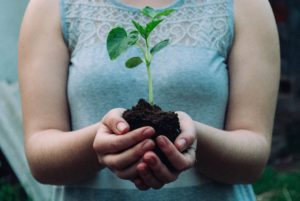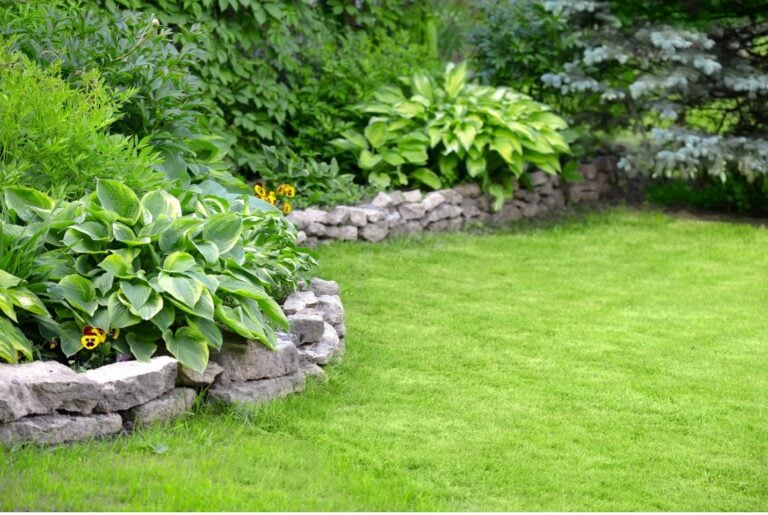Tips for Forming Daily Sustainable Habits
 It often seems like bad habits are a lot easier to form than good ones. This is especially true when it comes to living a more eco-friendly lifestyle. But to be fair, many of our bad habits were formed at a younger age when weren’t as aware as we are now of the toll our habits have on the planet.
It often seems like bad habits are a lot easier to form than good ones. This is especially true when it comes to living a more eco-friendly lifestyle. But to be fair, many of our bad habits were formed at a younger age when weren’t as aware as we are now of the toll our habits have on the planet.
Luckily, it’s never too late to start forming daily sustainable habits and minimizing your impact on the environment.
Reduce, Reuse, Recycle
A familiar part of sustainability is the practice of the 3Rs: Reduce, Reuse, and Recycle. We’ve all likely heard it countless times, however, it can often be misinterpreted. For some, a lot of focus falls on recycling and the other two end up getting overlooked. This is problematic because recycling should be thought of as the last step in the cycle, not the only one.
The key to forming and maintaining sustainable habits is reducing your overall consumption and, thus, impact. Minimizing your home and lifestyle is a great way to lower household waste, save money, reduce your carbon footprint, and even help decrease stress. Does this mean you need to purge every bedroom in your home? No. In fact, that’s quite the opposite as that will only contribute more waste and doesn’t help form those eco-minded everyday habits. Instead, start your minimalism journey by making the commitment to purchase fewer new products. This can look like repairing your T.V. rather than buying a new one or skipping Black Friday sales. Of course, forming more minimalistic habits doesn’t mean you can’t make purchases ever.
The next environmental R, after reduce, is reuse. Visiting thrift stores and the like is a great way to find a new use for previously owned items and keep them out of landfills. While recycling is an undoubtedly essential part of the equation, it’s necessary to incorporate all three environmental Rs into your eco-friendly habits. Not only for the sake of the environment but in order to start forming long-lasting practices.
Practicing the Art of Skinimalism
These days, you don’t have to be a popular influencer or online beauty guru to have a medicine cabinet full of products all promising to give you clear, glowing, ageless skin. Consumerism has shifted with the online world. While skincare and beauty marketing has always been about purchasing the latest products on the market, the pressure to appear flawless at all times has definitely increased thanks to social media.
Skinimalism, a play on minimalism, focuses on using the minimum number of products possible for the maximum benefits to your skin. It also is a great way to step back from the expectations that your skin needs to be anything other than that, skin. Perfection in a bottle doesn’t exist, yet a companies’ and influencers’ job is to convince you that it does — you just haven’t bought it yet.
This type of chaotic consumption is not only expensive, but also extremely harmful to the environment. Most skincare products come in plastic bottles and packaging, so if one person alone purchases hundreds of skincare products in their lifetime, just imagine the rest of the population and the amount of waste that will lead to.
Practicing skinimalism, beyond minimizing your product consumption, can also help you focus more on ethical product purchasing. Buying fewer products means you have more time to shop around and investigate. Through a marketing tactic known as greenwashing, a brand might appear to have ethical practices, but in reality, they don’t. Furthermore, figuring out if a brand is actually eco-friendly can be difficult in our fast-paced, buy-now-ask-questions-later world. A lot of companies are banking on that fact, hoping you won’t go digging too deeply into their claims. However, it’s important to research not just the products themselves but who is making them and how. From animal testing to toxic waste dumping, there could be a variety of harmful practices hidden within the latest skincare products filling your newsfeed.
Get Involved
Forming eco-friendly habits can be tough, but one way to help with that is by getting involved more with environmental activism. This is obviously not as easy as starting to recycle more, but engaging as an activist only helps to further your understanding of sustainability. It will lead to a great awareness of said bad habits and potentially give you the knowledge of how to quit them. And of course, involving yourself as an environmental activist will allow you to pass on your knowledge to others.
While it is important for us to individually form better sustainable habits, our efforts will pay off when everyone embraces more eco-friendly habits. Furthermore, we need policies in place that stop unethical and harmful practices from running rampant and environmental activism is one way to get involved with that process. There isn’t one way to get involved, so a great place to start is by referring to guides on ways to become a more engaged activist. Also, look for opportunities to learn about local environmental issues and concerns and attend events hosted by diverse groups.
Forming new eco-friendly habits starts with motivation. If you’re passionate about helping the planet, making informed shopping decisions, learning how to manage your waste responsibly, and minimizing your consumption of new products are a few strong ways to start


